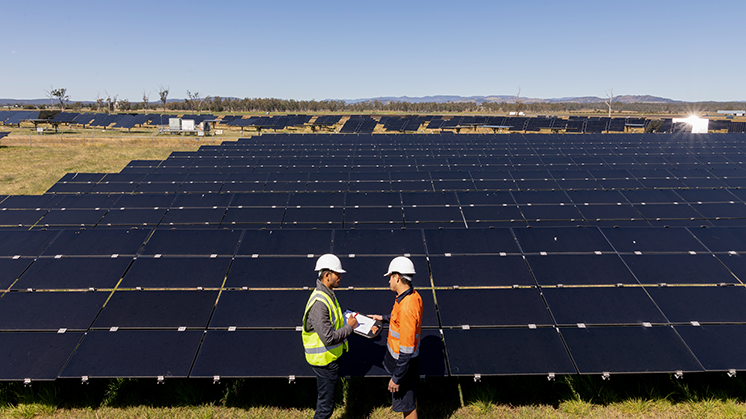
It is important that we seek to reduce the environmental impact of our operations while improving our disclosure on climate.
In FY23, we purchased renewable power for our Australian offices and we have further developed our approach to reporting our operational GHG emissions.
During FY23, our Scope 1 and Scope 2 carbon emissions were 285 tonnes CO21 which is a decrease from 1,286 tonnes CO22 during the prior year. This reduction is due to our purchasing GreenPower for our electricity usage in our Australian offices.3
Our Scope 3 operational emissions were 22,120 tonnes CO2e4 up from 2,425 tonnes CO2e in FY22. This increase is primarily because of an increase in the boundary of our GHG reporting methodology. To prepare for Climate Active certification and to continually improve our environmental reporting approach, in FY23, we conducted a review of our emissions boundary, aligning to guidance provided in GHG Protocol standards. As a result we have updated our GHG reporting methodology to include new Scope 3 emissions sources for the first time such as those associated with our waste and water usage, accommodation for business travel, employees working from home and some capital expenditure and purchased goods and services.5 The addition of these additional sources accound for 13,544 tonnes CO2e of the increase in our Scope 3 operational emissions.
[1] This is based on a market-based approach to calculating our Scope 2 emissions to account for renewable energy purchased in FY23. Scope 2 market-based emissions are calculated using emission factors from contractual instruments. Scope 2 location-based emissions, which are calculated using the average emissions intensity of the grid, are reported in our KPI tables in the FY23 Sustainability report.
[2] This is based on a market-based approach to calculating our Scope 2 emissions. The FY22 figure has been restated to include additional Scope 1 emissions sources and includes reduced Scope 2 emissions from electricity usage based on actual data collected from one of our global offices rather than estimating the data.
[3] We purchased GreenPower for our Australian offices in the first half of the calendar year 2023. This has been attributed and reported for the FY23 reporting year, following guidance and confirmation from Climate Active.
[4] Based on location-based methodology.
